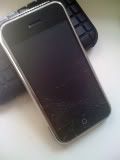“Hello, I’m a mac”… “and I’m a PC”…
Sound familiar to you? That is the beginning of nearly two dozen commercials in Macintosh’s attempt to thwart and dethrone Microsoft based PCs from being the number one in the world. What is it that makes Macs “better” than PCs? Is it their protection from viruses, spyware, adware and hackers? Is it their compatibility with other devices without drivers? Is it the fact that you can run Windows on them as well, so they’re the only computer you’ll ever need? Or even on their laptops - their power cord that just pops out in case someone trips over it? For those of you who haven’t seen the commercials, I bet you’re thinking “wow! No viruses? Run windows at the same time? No damage by tripping over a power cord? No having to search for device drivers when you get a new peripheral? I gotta get me one of these!”.
If that’s what you’re thinking, snap out of it. I will personally go over every one of the points I gave, and show why there’s no good reason to have to switch over to a Mac.
No viruses/spyware/adware/hackers:This may be true. People always complain about windows getting viruses, so they need to get a Mac so this doesn’t happen. This is true for the time being, but over time, it will become a false statement. Why do you think it is that Windows has viruses? It has been the same platform since the mid 80’s, and the scripts in the software have been relatively the same, so people have had time to better learn and understand it, therefore making it easier to write code that alters the original code negatively, and slows down, or corrupts the computer altogether, which, is what a virus is. The reason Macs have little or no viruses is that since they have not been popular for very long, so virus developers, who only make viruses that will affect the most people possible, have not yet developed viruses for Macs yet, because it won’t affect enough people. However, seeing that this is a main selling point for Macs, and that they’re succeeding with it, these developers will come up with a virus sooner or later, because they will learn the scripts in Macs, just as they did in PCs, and learn the damaging alterations, and before you know it, that will be common knowledge to hackers, and the mac will be just as vulnerable as the PC.
Compatibility with other devices without needing to install drivers:How convenient is that? You get a new digital camera (or webcam, TV Tuner, video card, external DVD burner, etc), plug it in, and use it without having to put in a disk, accept the license agreement you never read, wait for it to install, keeping you in suspense to be using it, and then eventually, you get to use it. This also relieves you of any possible stress of having to look around and find the drivers. Sure its convenient, but most people’s outlooks on adding new hardware are a bit exaggerated - many products these days don’t require drivers because of plug and play technology, and even if it wasn’t, how often do you add new devices? In a non-Mac case, you only have to install the driver once, so who’s to say that it’s a burden every time? Do it once. Get it over with. You’re done, you can do what you want with it now.
Run Windows secondary to Mac OS X:This has got to be the stupidest invention ever. I mean, sure, people want to be able to run Windows too so that they have ultimate compatibility, and make the transition to OS X easier, but having this basically negates the whole first point about hackers, viruses, spyware, and adware, seeing that the for-now-immune Mac OS X is opening its gates with the more attack-prone Windows acting as an additional Avenue into the system, in a much more vulnerable way, and in turn, makes it even more vulnerable than a PC.
These points just cover how the commercials are misleading. These are the realities of switching to a Mac…
Right clicking, start menu, tray loading disk drives, floppy drives, taskbar on the bottom of the screen, desktop icons aligned to the left side of the screen, are just some of the things you give up by switching to Mac. However, what I have found in most people to be a problem for switching to Macs is in the software they were frequently using for PCs. Things like Adobe Creative suite, Microsoft Office and Macromedia Flash studio are all available for Mac, but you must purchase again for use on the Mac platform, which can double or nearly triple the cost of your machine.
Bottom line: Macs are great machines… for now… as soon as the virus factor starts kicking in, they will be dead, and PCs will be the majority of computers in the world, just as they should be.
The commercials can be watched
here




